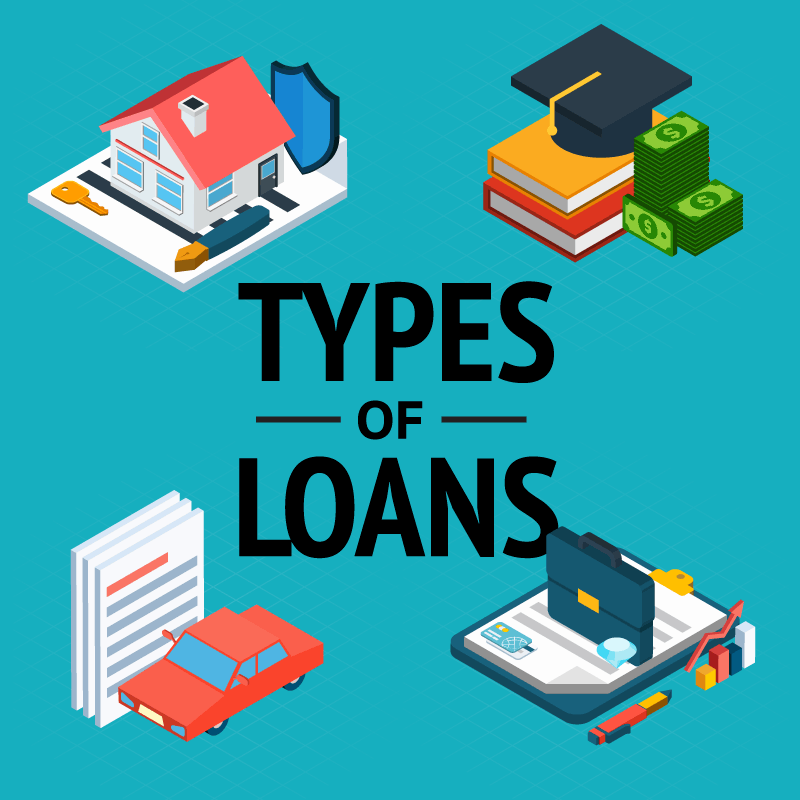Understanding important facts about Cash Advance Payday Loans for every financial need
A Comprehensive Guide to Home Loans: Provider and Options Explained
Charting the globe of home finances can be complex. Numerous options exist, each with one-of-a-kind functions and ramifications for potential house owners. Understanding the distinctions in between standard and government-backed loans is important. Moreover, the application procedure entails careful documentation and pre-approval actions that many forget. As consumers commence on their home-buying trip, understanding just how to manage these responsibilities properly might mean the distinction in between monetary security and difficulty. What techniques can equip them on this course?
Understanding Home Loans: Types and Terms
Understanding the numerous sorts of home mortgage and their linked terms is necessary for potential home owners, as it equips them with the expertise required to make educated monetary decisions. Home lendings can be broadly classified into adjustable-rate and fixed-rate home loans. Fixed-rate home mortgages keep a regular rate of interest over the life of the finance, offering stability in monthly payments. On the other hand, adjustable-rate home mortgages include rate of interest that might vary after a preliminary set period, potentially causing reduced first settlements however boosted future prices.
Additional terminology is crucial for quality. Principal describes the loan amount borrowed, while passion is the price of loaning that quantity. The term of the car loan suggests its duration, usually ranging from 15 to thirty years. Recognizing these fundamental concepts enables potential customers to navigate the complicated landscape of home financing, ensuring they select the appropriate lending option that straightens with their financial situation and lasting goals.
Standard Finances vs. Government-Backed Loans
A substantial difference in home financing exists in between government-backed car loans and conventional loans, each providing to different customer demands and conditions. Traditional car loans are not guaranteed or guaranteed by the government and typically need greater credit rating and down repayments. They are typically interesting customers with steady economic backgrounds, as they may supply affordable rate of interest and terms.
On the other hand, government-backed finances, such as FHA, VA, and USDA loans, are created to assist details groups of consumers, consisting of first-time buyers and professionals. These lendings normally feature reduced deposit requirements and more adaptable credit rating requirements, making them accessible to a more comprehensive series of people.
Ultimately, the option in between traditional and government-backed fundings rests on the borrower's financial situation, long-term goals, and qualification, making it necessary to meticulously review both options before making a choice.
The Role of Rate Of Interest Rates in Home Financing
Rate of interest play an essential duty in home funding, affecting customers' choices in between variable and set rate financings. The choice in between these alternatives can significantly affect regular monthly repayments, impacting general affordability. Comprehending how rate of interest rates work is important for anyone steering via the home car loan procedure.
Dealt With vs. Variable Rates
Property buyers deal with a crucial decision when selecting in between dealt with and variable prices, as this option substantially influences the price of funding over time. Fixed-rate mortgages supply security, securing in a rates of interest for the life of the financing, which can be useful in a climbing passion rate environment. This predictability allows property owners to budget extra properly. On the other hand, variable-rate home loans, or variable-rate mortgages (ARMs), normally start with reduced initial prices that can fluctuate based on market conditions. While this might lead to lower initial settlements, customers face the threat of boosted rates in the future. Eventually, the selection between variable and set prices depends on private economic situations, threat tolerance, and assumptions regarding future rate of interest price fads.
Impact on Month-to-month Settlements
When evaluating home financing choices, the influence of rate of interest on monthly payments is a key element to consider. Rate of interest directly affect the general price of loaning, influencing just how much a debtor will certainly pay each month. A reduced rates of interest cause smaller month-to-month repayments, making homeownership more budget-friendly. On the other hand, higher rates can significantly increase regular monthly commitments, potentially stressing a property owner's spending plan. Additionally, the finance term plays an essential function; longer terms might spread repayments out however can lead to paying more passion gradually - Cash Advance. Recognizing just how passion prices engage with car loan quantities and terms is essential for consumers to make enlightened monetary decisions and pick a home mortgage that straightens with their long-lasting economic objectives
Home Loan Brokers vs. Straight Lenders: Which Is Right for You?
When taking into consideration a home loan, potential debtors should recognize the distinct duties and duties of home loan brokers and straight loan providers. Each option provides its very own advantages and negative aspects, which read here can significantly influence the overall look at this now price of funding. An enlightened choice needs careful evaluation of these elements to establish the very best suitable for private needs.
Roles and Duties Specified
Navigating the complexities of home financing requires a clear understanding of the duties and obligations of home loan brokers and direct lenders. Installment Loans. Home loan brokers serve as middlemans, linking borrowers with lending institutions. They examine a debtor's financial circumstance, curate finance options, and guide clients with the application procedure, usually leveraging multiple loan provider connections to safeguard beneficial terms. Alternatively, direct lending institutions, such as financial institutions and cooperative credit union, offer lendings directly to customers. They deal with the whole finance procedure, from application to financing, with an emphasis on their very own items. Each alternative offers unique opportunities for acquiring financing, making it necessary for debtors to review their requirements and choices when deciding in between engaging a home loan broker or dealing with a straight loan provider
Cons and pros Comparison
Picking in between a home mortgage broker and a straight lender can considerably influence the home funding experience, as each option provides one-of-a-kind benefits and drawbacks. Mortgage brokers act as intermediaries, supplying access to several lending institutions and possibly much better prices, while streamlining the funding process. However, they might bill costs and rely on commission frameworks that could affect their suggestions. On the other hand, direct loan providers simplify the procedure by providing internal loans, which can bring about faster authorizations and less issues. Conversely, they might have a limited option of products and less adaptability relating to pricing. Eventually, the decision hinges on private preferences, financial situations, and the wanted degree of support throughout the home mortgage trip.
Expense Effects Evaluated
While assessing the price effects of home loan brokers versus direct lenders, potential house owners should consider numerous aspects that can considerably influence their general expenses. Home mortgage brokers commonly charge costs for their solutions, which can vary considerably, affecting the overall loan expense. They usually have accessibility to a broader variety of financing items and competitive rates, possibly conserving borrowers money in the lengthy run. Conversely, straight lenders might supply a much more uncomplicated process with potentially lower upfront costs, yet their finance alternatives may be limited. It is essential for home owners to compare passion prices, charges, and terms from both loan providers and brokers, ensuring they make an enlightened choice that lines up with their economic objectives and needs.
The Home Mortgage Application Refine: What to Anticipate
The mortgage application process can often really feel frightening for numerous applicants. It generally begins with gathering needed documentation, consisting of proof of income, credit background, and individual recognition. Lenders utilize this details to assess the candidate's financial stability and figure out loan eligibility.
Next off, applicants send an official application, which might involve completing on the internet forms or supplying information personally. During this stage, lending institutions assess various elements, such as debt-to-income proportion and credit report, to make a decision on financing terms.
As soon as pre-approved, the lending institution will conduct a comprehensive appraisal of the residential or commercial property to identify its worth aligns with the funding amount. This stage might also include added history checks.
After last approvals and problems are fulfilled, the financing is processed, leading to the closing stage. Comprehending each action encourages applicants, making the journey smoother and a lot more convenient as they move toward homeownership.
Tips for Handling Your Mortgage Sensibly
Successfully maneuvering the home mortgage application process is just the beginning of a responsible economic journey. Managing a home loan calls for focus to a number of key techniques. First, consumers must establish a clear budget plan that fits month-to-month home loan settlements, property taxes, and insurance coverage. Routinely examining this budget plan helps stop overspending and guarantees prompt repayments.

Additionally, making additional repayments when possible can considerably reduce the car loan principal and complete passion paid gradually. Borrowers ought to likewise preserve open lines of interaction with their lending institution, specifically in times of monetary problem - Installment Loans. This can bring about potential options such as financing adjustments or re-financing choices
Lastly, it is a good idea to keep an eye on credit report routinely. A great credit score can give opportunities for much better loan terms in the future. By adhering to these tips, house owners can browse their lending obligations properly, ensuring long-lasting financial wellness and security.
Frequently Asked Concerns
What Are Closing Costs and How Are They Calculated?
Closing expenses encompass costs connected with wrapping up a home mortgage, including assessment, title insurance coverage, and lending source charges. These expenses usually vary from 2% to 5% of the funding amount, varying based upon location and lending institution.

Can I Receive a Home Mortgage With Bad Credit Score?
Yes, individuals with poor credit rating can get a home financing, though alternatives may be limited. Lenders typically require greater down payments or rate of interest, and exploring government-backed loans may enhance opportunities of approval.
What Is Home mortgage Insurance coverage and When Is It Needed?
When a debtor makes a down repayment of much less than 20%, home loan insurance coverage secures lending institutions versus default and is typically required. It guarantees that lenders recover losses if the borrower falls short to settle the car loan.
Exactly How Does Refinancing Work and When Should I Consider It?
Refinancing involves changing a present home loan with a new one, generally to safeguard a reduced rate of interest or change lending terms. Property owners ought to consider refinancing when rates of interest go down considerably or their financial situation boosts.
What Happens if I Miss a Home Loan Repayment?
If a mortgage payment is missed, the lender usually examines late costs, reports the misbehavior to debt bureaus, and might launch repossession procedures if repayments proceed to be disregarded, at some point threatening the home owner's residential or commercial property.
Fixed-rate mortgages maintain a regular interest discover this info here rate over the life of the lending, providing security in regular monthly payments. A substantial difference in home financing exists between government-backed loans and standard car loans, each providing to different consumer requirements and conditions. In contrast, government-backed fundings, such as FHA, VA, and USDA finances, are developed to assist details groups of debtors, consisting of newbie buyers and veterans. Passion prices play a vital duty in home financing, affecting customers' choices between variable and set rate fundings. Fixed-rate home mortgages offer stability, locking in a rate of interest rate for the life of the funding, which can be useful in a rising interest rate atmosphere.